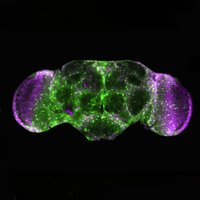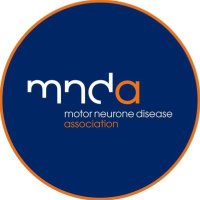
Niccoli Lab
@niccolilab
Niccoli lab at GEE, UCL London. Using Drosophila to understand dementia.
ID: 1119312214098362373
http://NiccoliLab.org 19-04-2019 18:50:02
881 Tweet
339 Followers
139 Following


Check out our new preprint on generation and characterisation of C9orf72 polyGR and polyPR knock-in mice. A huge effort over many years by Carmelo Milioto and many collaborators incl. Marc Aurel Busche Soyon Hong biorxiv.org/cgi/content/sh… 1/5


📣 We are hiring a research assistant to help us understand astrocyte interactions with the brain vasculature 💫. Please apply if you have right to work in the UK. Researchers from underrepresented backgrounds in science are always encouraged! elxw.fa.em3.oraclecloud.com/hcmUI/Candidat…

We are recruiting! Two positions available (postdoc & technician) in our newly relocated lab at the beautiful University of Warwick campus. Please share! Life Sciences EDRC2023 fly-jedi.org British Society for Research on Ageing jobs.ac.uk/job/DCD377/res… jobs.ac.uk/job/DCD617/res…

The 2nd annual London Glia Community Symposium is coming up next month! It will feature some fascinating talks & poster presentations emphasizing the wide range of glia research carried out in London🧠 📅 31 Oct 🌐 The Francis Crick Institute (& online) ✍️ Abstract deadline: 8 Sept buff.ly/3PrdgxA

Today Alzheimer's Research UK has laid bare the harsh realities of dementia and the impact of the condition on families. We know that research can change this, but we must keep momentum going. Stand with us today to change the ending.

Very excited to share our paper just out in Plos Genetics showing pyruvate import ameliorates fly models of dementia! Congratulations to Dongwei and Alec first authors! And thanks to Alzheimer's Research UK for funding! #PLOSGenetics: dx.plos.org/10.1371/journa…


.Adrian Isaacs shares his optimism for new dementia treatments. He & his team of researchers UK Dementia Research Institute are studying the underlying causes of dementia that will one day lead to new treatments for people with diseases like Alzheimer’s. His vital work will help us change the ending.


Excited to share the work of our postdoc Duxin showing a key role of Xbp1 in modulating neuronal vulnerability to C9orf72 repeat expansion toxicity. Thanks to our collaborators Evan Udine Adrian Isaacs and Tammaryn Lashley biorxiv.org/content/10.110…


Whether or not we develop dementia is down to a combination of different risk factors – but what is a risk factor? Our new animation, narrated by Sean Bean, explains more about the risk factors many of us can control, and those we can’t. Learn more 👇 alzheimersresearchuk.org/dementia-infor…






